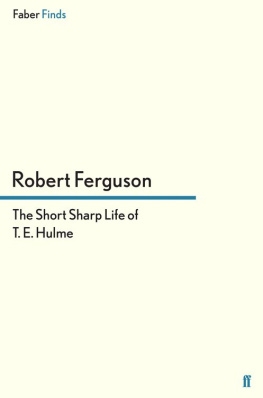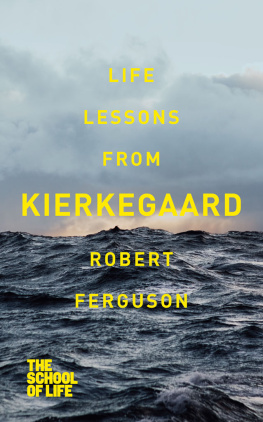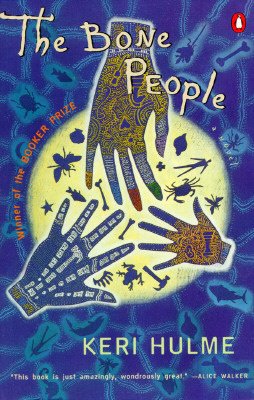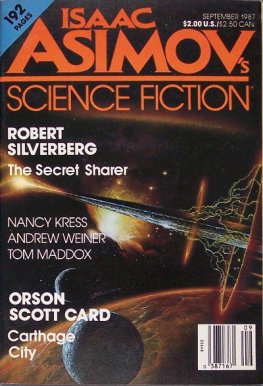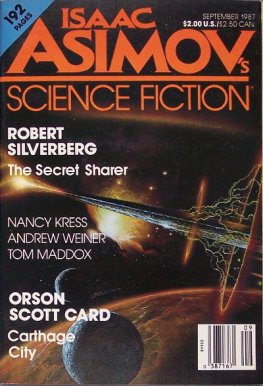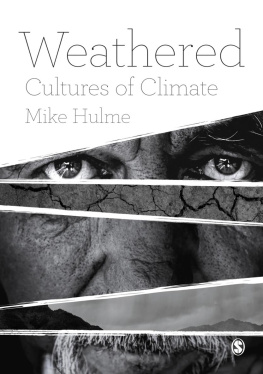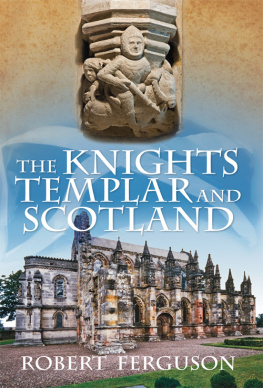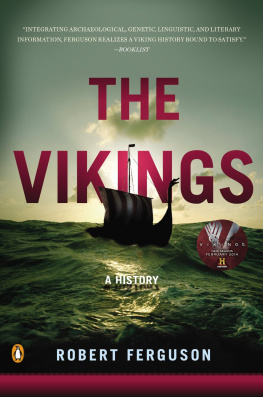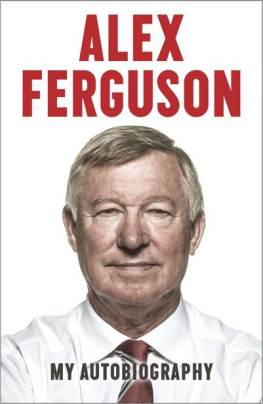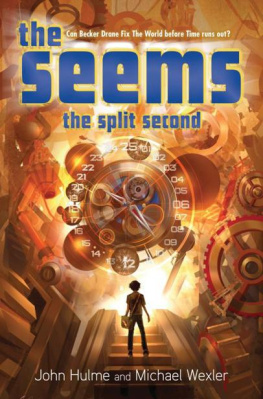Ferguson Robert - The short sharp life of T.E. Hulme
Here you can read online Ferguson Robert - The short sharp life of T.E. Hulme full text of the book (entire story) in english for free. Download pdf and epub, get meaning, cover and reviews about this ebook. City: London, year: 2012, publisher: Faber and Faber, genre: Detective and thriller. Description of the work, (preface) as well as reviews are available. Best literature library LitArk.com created for fans of good reading and offers a wide selection of genres:
Romance novel
Science fiction
Adventure
Detective
Science
History
Home and family
Prose
Art
Politics
Computer
Non-fiction
Religion
Business
Children
Humor
Choose a favorite category and find really read worthwhile books. Enjoy immersion in the world of imagination, feel the emotions of the characters or learn something new for yourself, make an fascinating discovery.
- Book:The short sharp life of T.E. Hulme
- Author:
- Publisher:Faber and Faber
- Genre:
- Year:2012
- City:London
- Rating:5 / 5
- Favourites:Add to favourites
- Your mark:
- 100
- 1
- 2
- 3
- 4
- 5
The short sharp life of T.E. Hulme: summary, description and annotation
We offer to read an annotation, description, summary or preface (depends on what the author of the book "The short sharp life of T.E. Hulme" wrote himself). If you haven't found the necessary information about the book — write in the comments, we will try to find it.
The short sharp life of T.E. Hulme — read online for free the complete book (whole text) full work
Below is the text of the book, divided by pages. System saving the place of the last page read, allows you to conveniently read the book "The short sharp life of T.E. Hulme" online for free, without having to search again every time where you left off. Put a bookmark, and you can go to the page where you finished reading at any time.
Font size:
Interval:
Bookmark:
To Nina
(Photographic acknowledgements are given in parentheses)
Every effort has been made to contact all copyright holders. The publishers will be glad to make good in future editions any errors or omissions brought to their attention.
TEXT ILLUSTRATIONS
Plates
Paul Hulme; David Auchterlonie; Wendy Butler at Newcastle- under-Lyme School; Dr Bill Evans of Gratton; Dr Samuel Hynes; Alun R. Jones; Martin Kibblewhite; Ian Harwood; Chris Clayton; Douglas Clayton; Petter Naess; Chris Wildon Bryan-Brown; Ben Read; Helen Burton at Special Collections and Archives, Keele University; Brian Dyson at Special Collections, University of Hull; Dr Ruth Vincent-Kemp ; Sister Margaret Truran and Dame Felicitas Corrigan at Stanbrook Abbey, Worcester; Tara Wenger and Avi Santo at the Harry Ransom Humanities Research Center, Texas; Jennifer Graham Jones; Margaret Myatt and Sarah Myatt; Mrs A. Gilman; Ian V. Hogg; Ann Hulme; Susumu Kanetake; Geoff Perkins; David Sexton; Malcolm Underwood at St Johns College, Cambridge; David Wildon Carr; Richard Cork; Wendy Baron; Bob OHara; Steinar Elstrm; Chris Jakes of the Local Studies collection, Cambridge Central Library; Adeline Van-Roon and Dr Evelyn Silber at the Henry Moore Institute, Leeds; Juliette Mitchell; David Freedman; Gene M. Moore; Ray West-lake ; Joe McKenna; Bruce Swann at the University of Illinois at Urbana-Champaign ; Shanon Lawson; Carl Spadoni; Sheila Turcon; Paul OKeefe; Stephen Crook; Jim Moske; Michael Whitworth; Kathleen Cann; Steve Birks; Gillian Raffles; Tim Groom; Stewart Robinson; Susie Graham-Jones; Lucy Wright at the Manuscripts Room, University College, University of London; Matthew Little, Royal Marines Museum Archivist; Bev and Mary Taylor; Mrs V. Hodnett; Sarah R. Jackson at the Stephen F. Austin State University, Texas; Dr Kathleen Garay; Jonathan Blackwood of Kettles Yard, Cambridge; Dr David Sutton at the University of Reading; Joanna Kyle at the BBC; Inez Lynn of the London Library; Erin Giordano of the Berlitz Schools; Ami Oliver-Stilwell at the Tate Gallery Archives; Frank Rickarby; Becky Cape at the Lilly Library, University of Indiana; Alan Wakefield; Chris Farrington; Hvard Johansen; Bernard Hallen; Lynette Madelin; Ruth Vincent-Kemp; Stuart Proffitt; Gloria Ferris; Rivers Scott.
For permission to use and quote from their archives I am grateful to the Masters, Fellows and Scholars of St Johns College, Cambridge. My thanks are also due to Dr Samuel Hynes and the University of Minnesota Press for permission to reprint the Diary from the Trenches first published in FurtherSpeculations. For permission to quote from letters and papers in their possession I am grateful to the Harry Ransom Humanities Research Center, The University of Texas at Austin; the University Library, Keele University; the Brynmor Jones Library, the University of Hull; Rarebook and Special Collections Library, the University of Illinois at Urbana-Champaign; the Berg Collection, The New York Public Library; the Lilly Library, Indiana University, Bloomington, Indiana; the McMaster University Library, Hamilton, Ontario, Canada; the Tate Gallery Archive.
Introducing himself to an audience of London poetry lovers at a lecture in 1908 T. E. Hulme gave them clear notice of what to expect: I have not a catholic taste, he announced, but a violently personal and prejudiced one. I have no reverence for tradition. Hulme was is always trenchantly, conversationally quotable. That loose, speaking style is one of his great attractions. I recall, too, how well I savoured the contrast between the anti-romantic nature of his thought and the romantic nature of his personal fate: an early death fighting for his country in the Great War; the entirely posthumous fame based on a tiny legacy of philosophical and critical essays and The Complete Poetical Works, five short poems of a striking austerity and beauty. With Rimbaud he shared the distinction of having rejected, at an early age, the adored art of poetry. Reading Alun Joness biography of Hulme, with its anecdotes of curious and unusual behaviour, only increased my fascination.
But young men are easily fascinated: in the larger scheme of things, was there any substance to Hulme? Does he matter? The answer is, yes, he does. He was one of the half-dozen midwives of the Modernist aesthetic in poetry that was dominant for much of the twentieth century, and his influence on the young Ezra Pound, by personal acquaintance, and on T. S. Eliot, through his writings, has ensured that Hulmes name is never absent from discussions of the development of modern poetry. Like almost everything else he wrote, it was interesting, definite and provocative.
Remarkably, in view of his reputation and influence on twentieth-century British and American culture, at the time of his death Hulme had published no book and his name was unknown except to a small circle of artists and intellectuals in London and to readers of the cultural and literary weekly TheNewAge, with which he was associated as a writer. In 1920 his friend Ethel Kibblewhite handed over a mass of his papers and manuscripts to the critic and writer Janko Lavrin, who passed them on to A. R. Orage, editor of TheNewAge. Orage was convinced that, with good editing, something of value could be salvaged from the rick of papers. His first approach was to the poet F. S. Flint, who declined the task. Orage then offered it to his 27-year-old protg Herbert Read, the poet and critic, who had been an avid reader of TheNewAge since his student days in Leeds, and an admirer of Hulmes contributions to the paper in particular. Read accepted, and between 1920 and 1922 fragments of Hulmes poetry, aphorisms and writings on the French philosopher Henri Bergson appeared in the pages of the magazine. At some point the idea occurred of having a selection of essays and fragments published in book form, and Read wrote to offer the idea to C. K. Ogden, editor of the InternationalLibraryofPsychology,PhilosophyandScientificMethod, explaining that he had no interest whatsoever in seeing them published beyond the desire to see work that is, to say the least, provocative and vigorous, saved from complete oblivion.
Speculations:EssaysonHumanismandthePhilosophyofArt duly appeared in 1924. It consisted of Humanism and the Religious Attitude ; Modern Art and Its Philosophy; Romanticism and Classicism; Bergsons Theory of Art; The Philosophy of Intensive Manifolds; Cinders, a collection of aphorisms and penses; and an Appendix consisting of Hulmes introduction to Sorels ReflectionsonViolence; his Plan for a Book on Modern Theories of Art; and the five short poems gathered as The Complete Poetical Works of T. E. Hulme.
The few reviews it attracted on publication showed what would become a characteristic split in responses to Hulmes writing, between those such as H. C. Minchin in the SundayTimes who found it hard to hide their distaste for the views expressed and the manner in which they were expressed, and those such as the anonymous reviewer in the TimesLiterarySupplement who savoured the writers rare gift for forcing people to dissent from him. Speculations did not sell well, but it was nevertheless the volume that created and sustained Hulmes reputation in the interwar years and it became essential reading matter for young British intellectuals of the period.
One of its most enthusiastic readers was the poet Michael Roberts, who in 1938 wrote the first full-length study of Hulmes thought;
Speculations also fascinated postwar intellectuals in the anti-revolutionary 1950s. The Marxist critic Raymond Williams devoted a section of the Interregnum chapter in
Font size:
Interval:
Bookmark:
Similar books «The short sharp life of T.E. Hulme»
Look at similar books to The short sharp life of T.E. Hulme. We have selected literature similar in name and meaning in the hope of providing readers with more options to find new, interesting, not yet read works.
Discussion, reviews of the book The short sharp life of T.E. Hulme and just readers' own opinions. Leave your comments, write what you think about the work, its meaning or the main characters. Specify what exactly you liked and what you didn't like, and why you think so.

